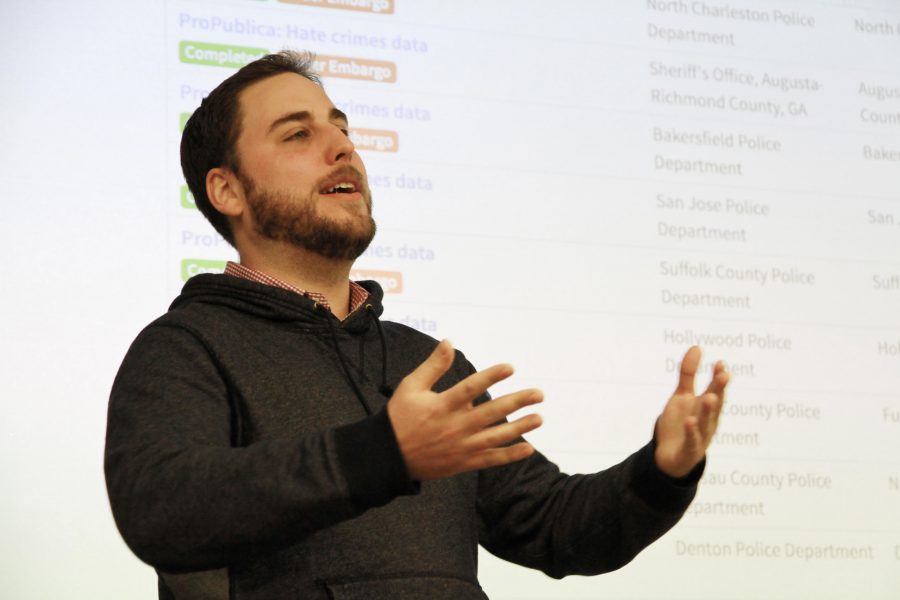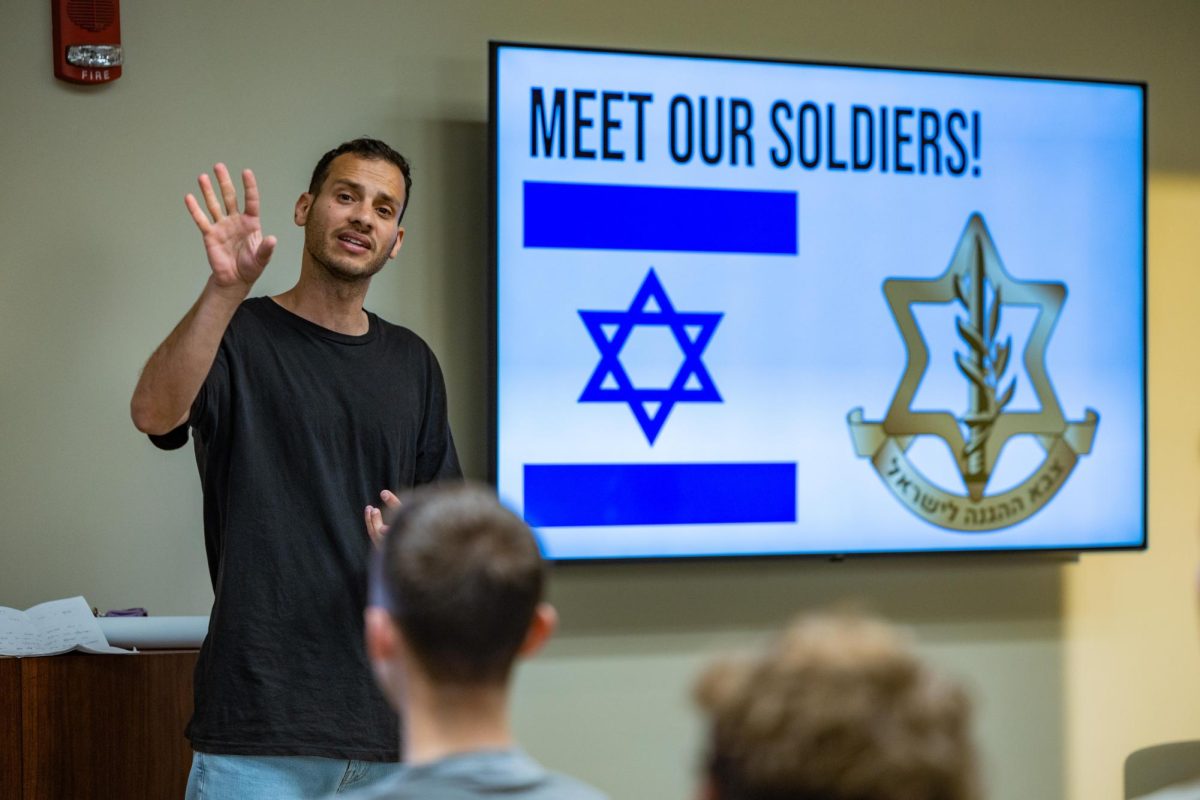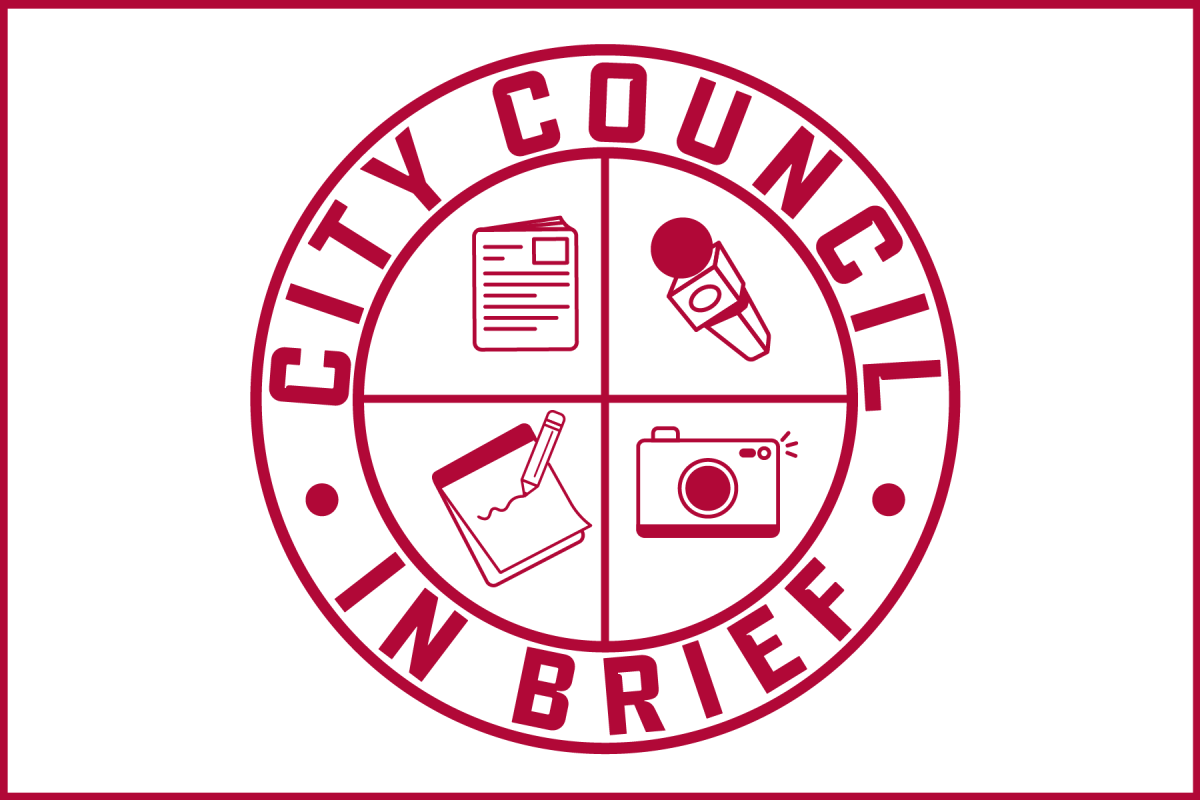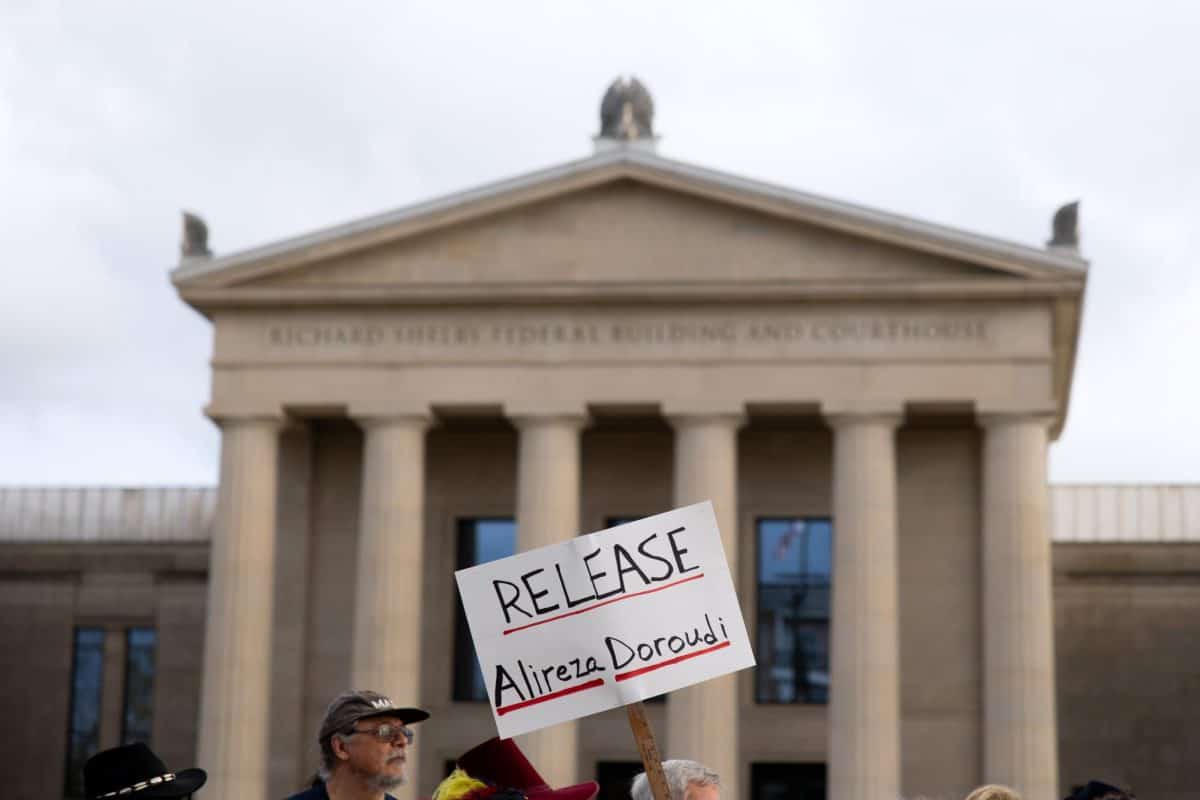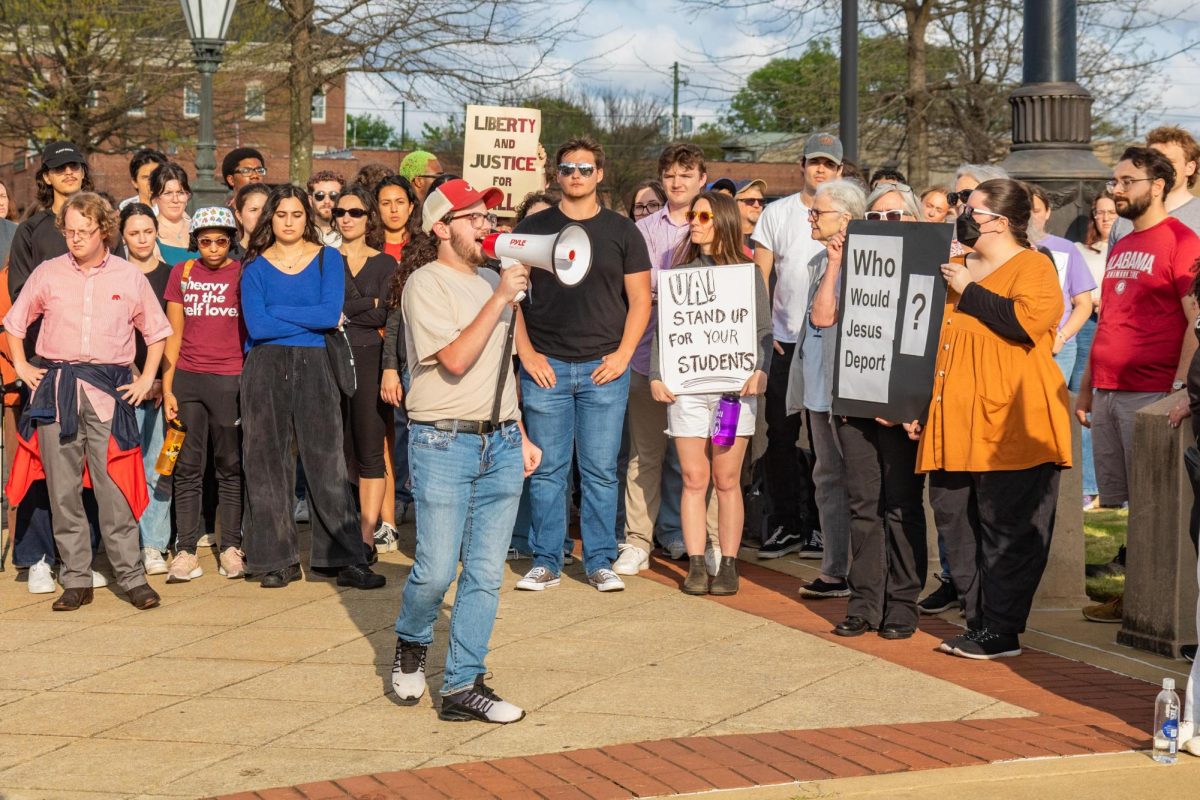Ken Schwencke, a journalist and news applications developer for ProPublica, a nonprofit investigative journalism newsroom founded in 2007, gave a presentation to about 65 people entitled “Covering Hate in a Divided Nation” on Feb. 8.
“It’s the first major collaborative event of Communication and Information Sciences organizations,” said Christina Ausley, president of Society of Professional Journalists.
ProPublica’s coalition extends over 130 news organizations, including partners like BBC, Forbes, The Washington Post, NPR, New York Times and Huffington Post. ProPublica’s process involves processing tips and data from the public and civil rights groups, Schwencke said.
“We cover things that we think can have impact on people’s lives,” Schwencke said.
Topics he covered included strict identification regulations during the 2016 presidential election and his experience covering hate crimes and white supremacy in the past year.
Schwencke said the federal government has done a bad job at collecting information and documenting hate crimes, though they have been required to do so under law since 1990. In the past year, ProPublica has received close to 5,000 tips, leading to 100 published stories between ProPublica’s partners, and at least six police departments have changed their policies after such articles were published.
Schwencke’s former employers include Los Angeles Times and The New York Times. His job includes creating maps and building databases reflecting the data he collects. Such graphs include hate crime reporting in every state versus their population.
“Places like California don’t have more hate crimes than Texas necessarily,” Schwencke said. “Texas is severely underreporting its hate crimes in its cities.”
One ProPublica article about hate crimes was about states that do not have hate crime laws. For instance, Alabama does not have an LGBTQ-inclusive hate crime law, Schwencke said.
“We can’t ignore the elephant in the room, which is that there is a insurgent white supremacist movement,” he said.
He mentioned white supremacist flyers, and one woman in the audience confirmed seeing them on UA’s campus before. Schwencke warns that giving a supremacist a voice through publication amplifies their message.
“You should absolutely be conscious of the people that you are quoting and the platform you are giving them in your stories,” he said. “You should think about the way people use you.”
Schwenke said white supremacist groups are changing their tactics with campaigns like “It’s Okay to Be White,” which forces people to question whether they can speak out against such a campaign without being called racist.
An audience member asked if anything has changed his notions about hate crimes in the United States during his time looking into it. He said hate-crime laws aren’t very useful when it comes to prosecution.
“We are living in a time where the movements are resurging,” Schwencke said.
Marcelle Peters, president of the National Association of Hispanic Journalists, one of the sponsors of the event, said it is really important people in the C&IS college have the opportunity to come and listen to issues that affect society and affect our student population.



